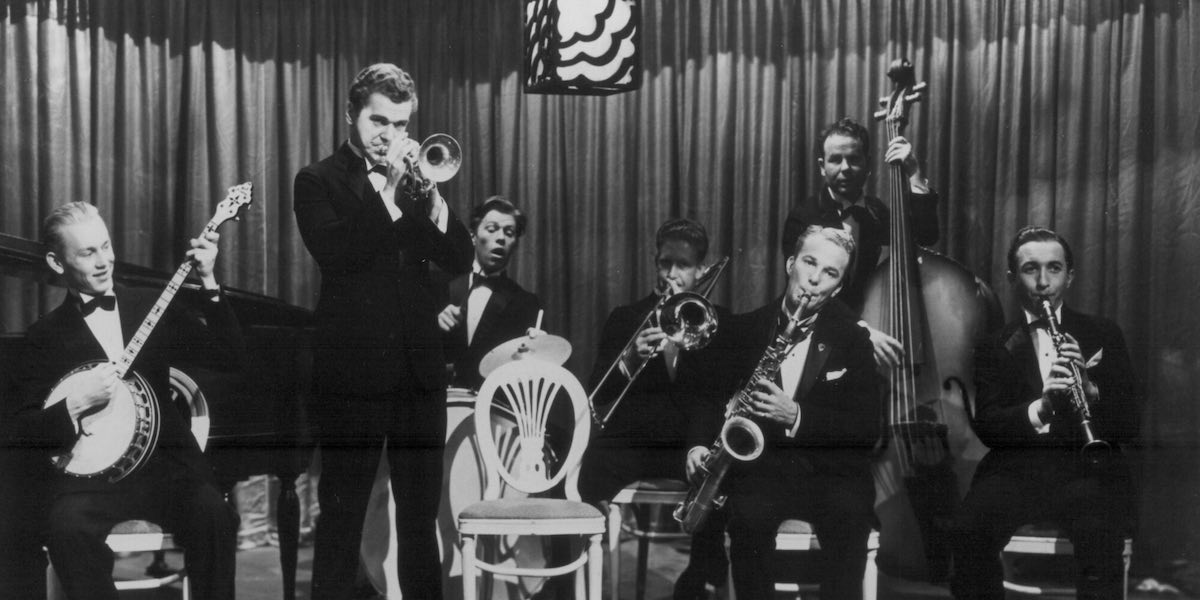What begins as a refreshingly honest depiction of the origins of jazz (from the seeds of the music rooted in slavery) and follows the progression of the music throughout New Orleans, St Louis, and Chicago) somewhat loses its narrative thread and structural purpose after the first act. The story by the estimable Valentine Davies, of Miracle on 34th Street, resorts to a lacklustre yet familiar love story replete with World War Two diversions, while Jessica Grayson stars as Ella, a black maid who reminds the viewer that this is essentially a pre-war film.
The by-the-numbers plot involves the journey of rich piano player Kit, played by Bonita Granville, as she learns the jazz standards at the knee of Ella before boogie-woogying her way into a courtroom for outraging public decency by starting a riot with her walking bass… or something. Jackie Cooper plays her beau, Johnny Schumacher, the less-than-convincing white trumpeter learning jazz riffs, while Ella’s son Rex is played by real-life baritone and the original Porgy, Todd Duncan.
A film which intends to trace the roots of jazz and showcase some of the forties’ greatest talents is an ambitious project and director William Dieterle delivers in a first sweeping act which outlines the source and development of the art form. His handling of the more studio-friendly fare is less certain and much of Kit and Johnny’s story is quiet childish and poorly executed. The aforementioned riot is not actually staged or depicted in any way which makes the subsequent court case and resolution all the more confusing.
Eureka is no doubt presenting this film as an example of early black talent in the Hollywood system, despite the fact that Dieterle was already attracting the attention of the FBI for his sympathies with anti-fascists. Notwithstanding the efforts of blacklist ‘front’ Philip Yordan and the far less impressive Frank Cavett, the film feels horribly compromised, as the black characters are sidelined for the bulk of the love story and the third act culminates with a weird jam session incorporating all the white jazz talent of the day.
Syncopation is a missed opportunity and its failures are twofold: the sidelining of the black characters degrades the authenticity that the premise promises, while as a vehicle to sell jazz to the masses it similarly fails by presenting a messy and tonally simplistic tale of boy meets girl meets trumpet. Enjoy the music and the optimistic, upbeat attitude of the protagonists – but bemoan the fact that there is not more Todd Duncan, one of the only true artists, on the screen.
Available on Blu-Ray from Eureka on Mon 16 March 2020
